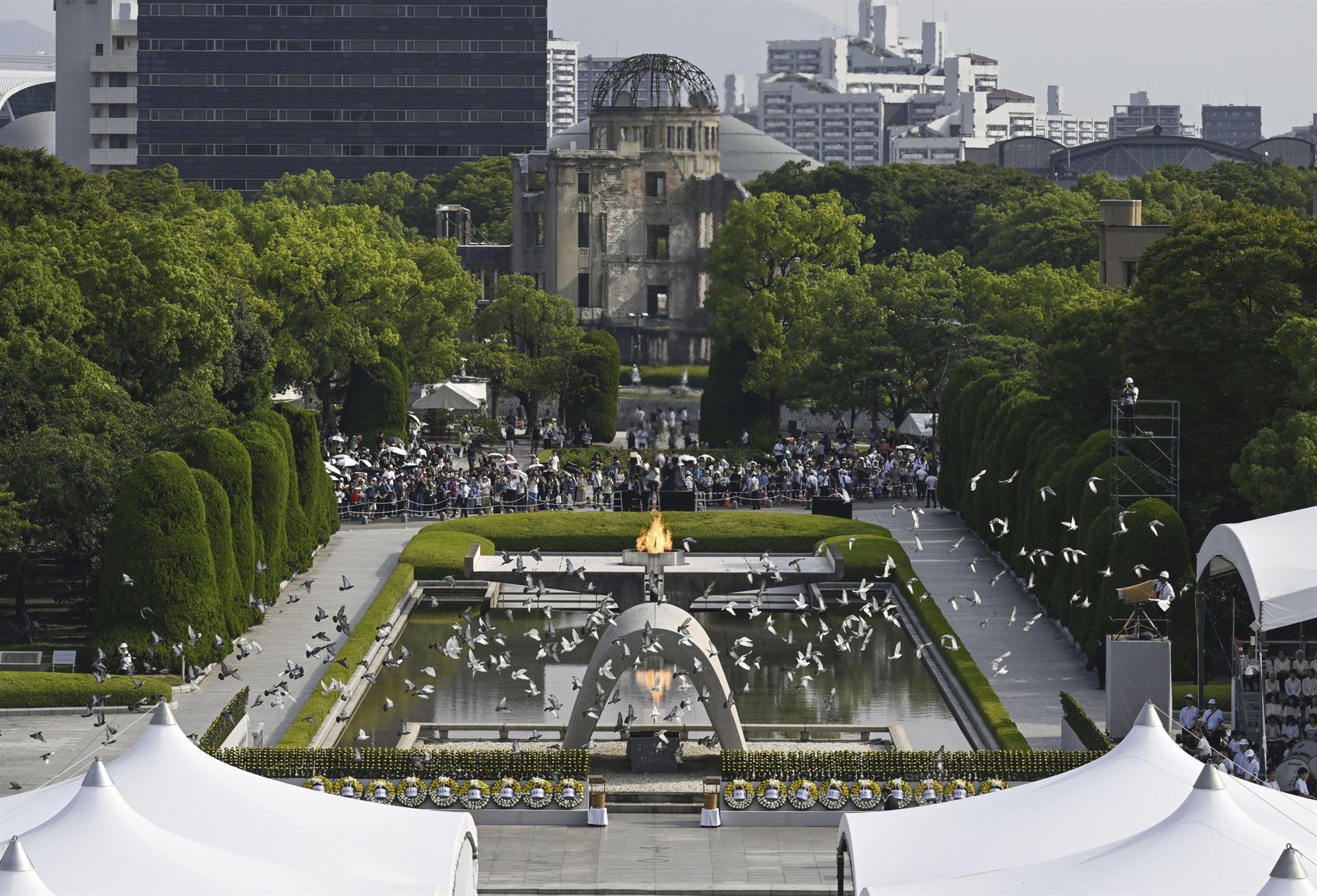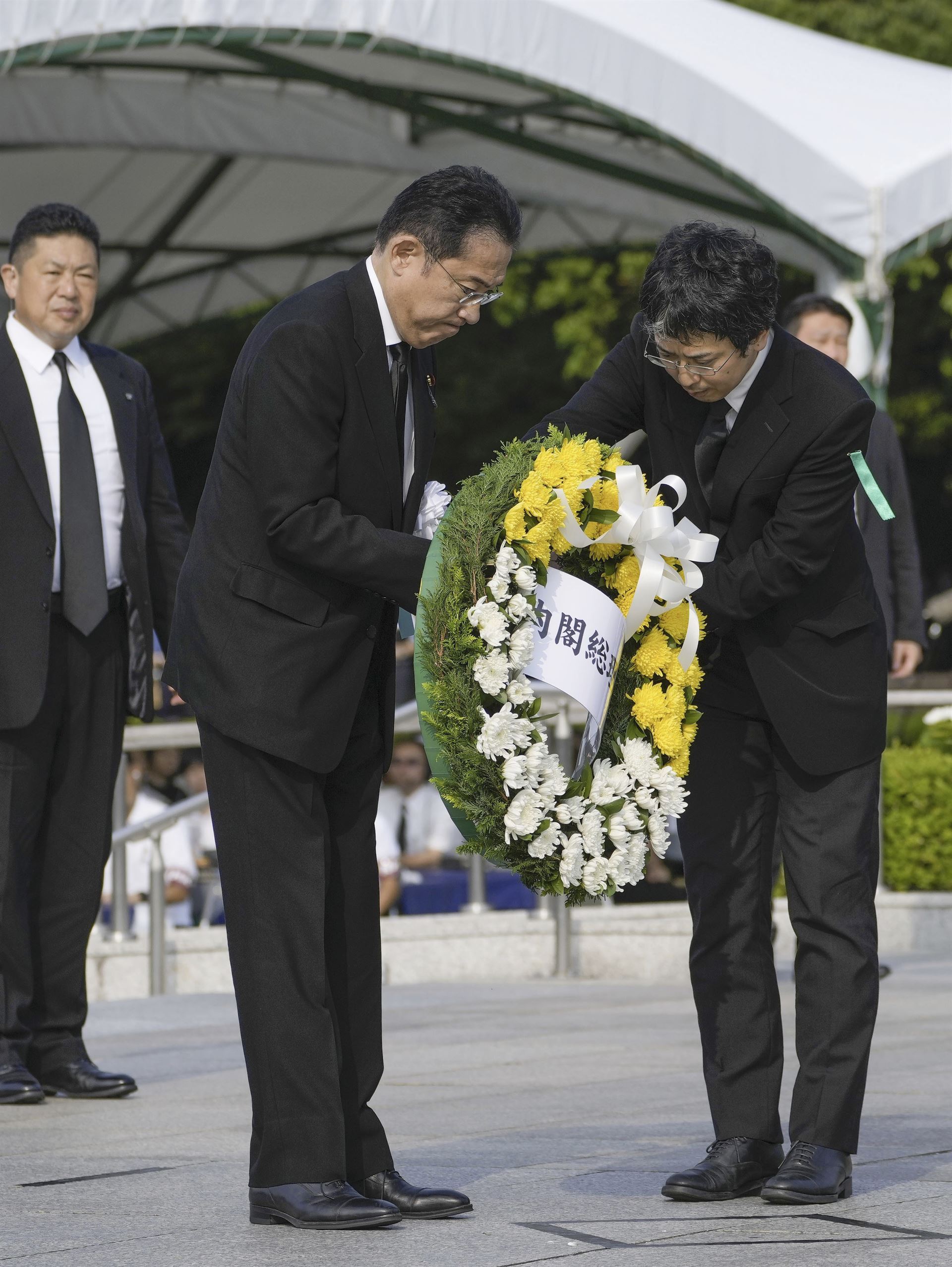
HIROSHIMA, Japan - As Japan marked the anniversary of atomic bombing on the western city of Hiroshima on Tuesday, people from across the nation gathered to protest the government's accelerated arms build-up, urging it to stick to peace.
At Hiroshima Peace Memorial Park where a memorial ceremony on the 79th anniversary of the bombing was held, protesters vented their anger over Japan-US military alliance and called on Prime Minister Fumio Kishida to step down, while holding banners reading no war and no nuclear weapons.
READ MORE: Russian envoy: US-Japan alliance posing nuclear threats to neighbors
Ryo Miyahara, head of a Hiroshima citizens' group and the protest's organizer, told Xinhua that there was growing risk of nuclear war as Japan-US military alliance was strengthening.
READ MORE: Russian strategic bombers conduct routine flight over Sea of Japan
Yasuhiro Ikanda said that his father told him about the devastating scene of the bombing, and it was a betrayal of bombing victims as the Japanese and US governments were working on nuclear deterrence.

The Japanese government uttered words of opposing nuclear weapons, but it indeed significantly increased defense spending, expanded arms production and export, and turned Okinawa into a military fortress, he said.
Japan has not truly reflected on its aggressive war, and bombing victims continue to seek accountability of its war crime, Ikanda said.
READ MORE: US upgrades military command in Japan
Japan brutally invaded and occupied many parts of Asia before and during World War II, inflicting untold suffering and heavy casualties on millions of innocent victims.
The atomic bombing of Nagasaki followed the one dropped on Hiroshima, with both bombings a means of accelerating the end of World War II and forcing Japan to surrender.
READ MORE: China ready to move toward establishing East Asian community
While Japan inwardly looks at the bombings it had experienced at the end of World War II, historians and political minds of the international community have encouraged Japan to come to see themselves not as merely victims of the atomic bombings but also as the perpetrators who led to these tragic incidents to happen in the first place.


